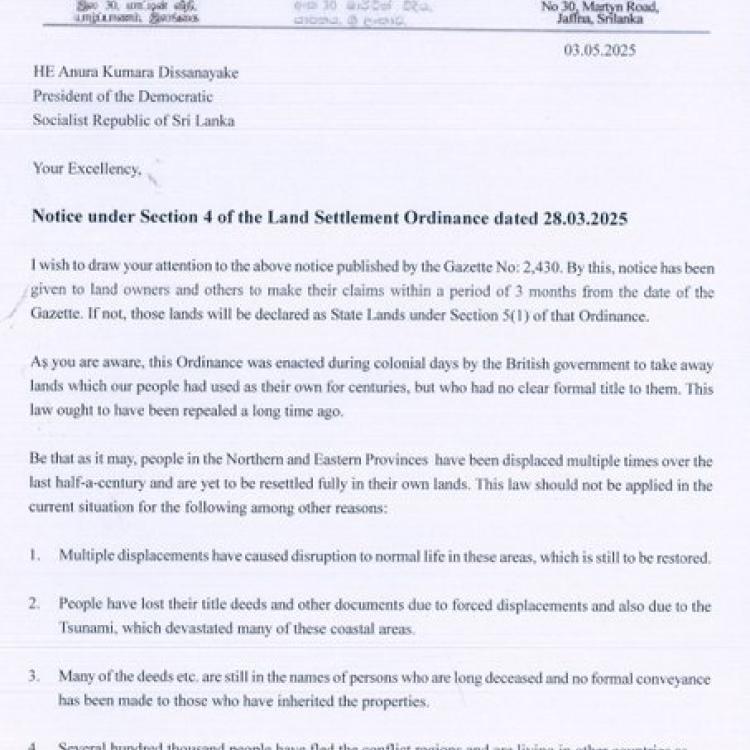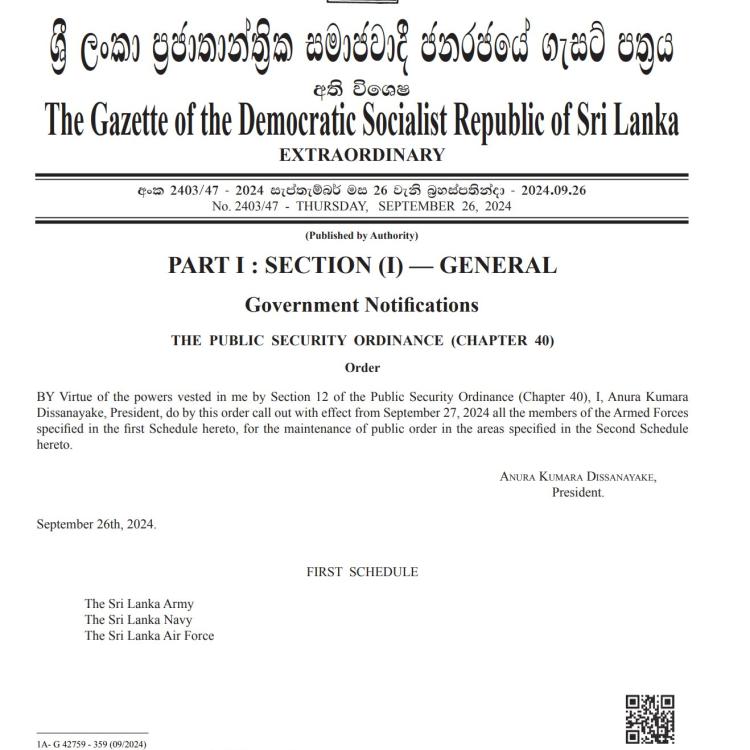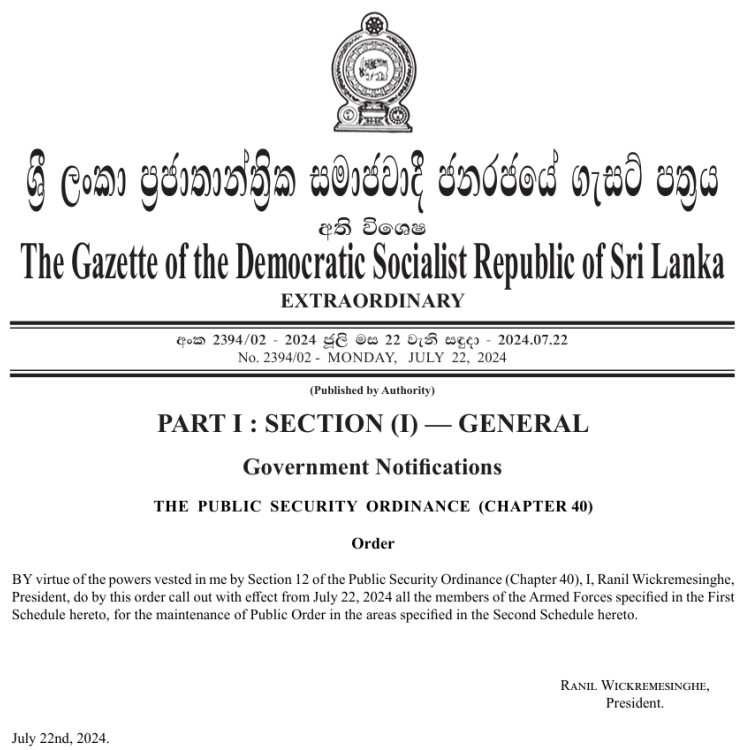
Tamil National People's Front (TNPF) leader and Jaffna District MP Gajendrakumar Ponnambalam has sharply criticised the Sri Lankan government’s latest move to seize thousands of acres of land in the North, accusing it of using bureaucratic manoeuvres as a pretext to advance Sinhala-Buddhist colonisation and displace Tamils from their homeland.
Speaking in Parliament on 8 May, Ponnambalam condemned a Gazette notification issued on 28 March, which declares that 5,941 acres across the Northern Province will be claimed as state land unless private ownership is proven within a three-month deadline. The land in question includes 3,669 acres in Jaffna, 1,703 acres in Mullaitivu, 515 in Kilinochchi, and 54 in Mannar.
Ponnambalam told Parliament that it is a deliberate effort to dispossess Tamil people, not an administrative oversight.
He emphasised that large portions of the Tamil population fled the North-East during the armed conflict, leaving behind homes and property under the threat of military violence and persecution. Many of them, now living in exile across the globe, face enormous legal and logistical hurdles in proving land ownership within the narrow timeframe now imposed by the state.
“Is it fair to demand they claim ownership now?” Ponnambalam asked. “The land issue is deeply interwoven with the ethnic conflict faced by Tamils. Does this government not understand that?”
He noted that decades of displacement, conflict, and state violence have fragmented land records and left many Tamil families without access to documentation. In previous years, even Sri Lankan regimes accused of overt racism had acknowledged these complexities and introduced protective mechanisms to prevent mass land appropriation.
But the current administration, Ponnambalam warned, is “doing what even those racist governments dared not.” He characterised the policy as part of a wider campaign of structural genocide, carried out through legal and administrative means under the guise of land reform and development.
“This Sri Lankan government lacks a spine,” he declared, for being either unable or unwilling to stop the military’s anti-Tamil actions or challenge its entrenched mindset. “The military still sees Tamils as the enemy.”
Ponnambalam pointed to militarisation and fishing disruptions as symptoms of this militarised occupation, particularly in strategic areas such as Thaiyiddy and Myliddy, where fishing communities have been barred from returning.
He further warned that what is happening in the Northern Province today could soon spread.
“Mark my words, today they target the Northern Province, tomorrow it will be the Eastern Province,” he cautioned. “This is not merely an issue affecting Tamils; it will soon affect all Tamil-speaking people.”
Calling for the immediate withdrawal of the Gazette notification, Ponnambalam insisted that land rights were fundamental to Tamil survival and reconciliation.
“Failure to consult Tamil leadership will only exacerbate tensions between the North-East and the South,” he said, adding that the state’s refusal to engage seriously with Tamil grievances would further alienate the Tamil nation and undermine any future prospects for peace.
The move to seize land comes as Tamil families across the North-East continue to resist state-sponsored colonisation and military occupation.
This latest warning from Ponnambalam adds to a growing chorus of Tamil voices urging international attention and accountability over Sri Lanka’s ongoing land grabs, which rights groups and Tamil organisations have long decried as part of a broader project of ethnic displacement and demographic reengineering.




